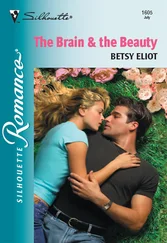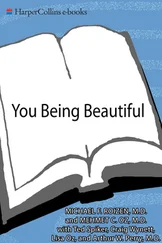Antonia Quirke - Madame Depardieu and the Beautiful Strangers
Здесь есть возможность читать онлайн «Antonia Quirke - Madame Depardieu and the Beautiful Strangers» — ознакомительный отрывок электронной книги совершенно бесплатно, а после прочтения отрывка купить полную версию. В некоторых случаях можно слушать аудио, скачать через торрент в формате fb2 и присутствует краткое содержание. Жанр: unrecognised, на английском языке. Описание произведения, (предисловие) а так же отзывы посетителей доступны на портале библиотеки ЛибКат.
- Название:Madame Depardieu and the Beautiful Strangers
- Автор:
- Жанр:
- Год:неизвестен
- ISBN:нет данных
- Рейтинг книги:4 / 5. Голосов: 1
-
Избранное:Добавить в избранное
- Отзывы:
-
Ваша оценка:
- 80
- 1
- 2
- 3
- 4
- 5
Madame Depardieu and the Beautiful Strangers: краткое содержание, описание и аннотация
Предлагаем к чтению аннотацию, описание, краткое содержание или предисловие (зависит от того, что написал сам автор книги «Madame Depardieu and the Beautiful Strangers»). Если вы не нашли необходимую информацию о книге — напишите в комментариях, мы постараемся отыскать её.
Madame Depardieu and the Beautiful Strangers — читать онлайн ознакомительный отрывок
Ниже представлен текст книги, разбитый по страницам. Система сохранения места последней прочитанной страницы, позволяет с удобством читать онлайн бесплатно книгу «Madame Depardieu and the Beautiful Strangers», без необходимости каждый раз заново искать на чём Вы остановились. Поставьте закладку, и сможете в любой момент перейти на страницу, на которой закончили чтение.
Интервал:
Закладка:
26
Marcus Denning was an actor who had appeared in a series of adverts for instant coffee in the early 90s as a thirtysomething vet who goes to work in the country because, as he tells his mother in the first commercial: ‘I'm a vet, Mum. I belong in the country. Country air, country people, country ways.’
No sooner has he arrived (‘But I haven't even unpacked yet!’) than he is doing something indeterminate to an ailing but photogenic cow. ‘That's that, then,’ says the kindly yet curmudgeonly farmer. Marcus, transmitting with great delicacy a millisecond of umbrage, counters with: ‘A coffee would be nice …’ (the embedded catch-phrase). But the farmer doesn't have any!
‘Good job I brought my own,’ Marcus says, still cleverly conveying a scintilla of urban disdain for rural hospitality. Fences are mended over a cup of instant at the farmhouse table. Indeed, so taken is the farmer by this metropolitan concoction that he threatens to retain the jar ‘until next time’. Marcus now has to convey, in one-and-a-half seconds,
shock
reflex urban possessiveness
the softening of that possessive impulse as he comprehends the farmer's disguised compliment
and soul-deep satisfaction as he realises he's been accepted, thus escaping the surly bonds of his transparently suffocating maternal relationship
Don't knock the ad actor, master of micro-technique. So recognisable was he as this vet at the time, that he'd come out of his house the week before I met him to see a group of people standing round an injured bird, and they'd turned and looked at him, clearly expecting him to do something about it. He'd even been in the News of the World under the headline ‘RAT VET LOVER – Coffee Vet Cheats!’ when an ex-girlfriend sold her story about how he'd left her for another woman.
The girl who he'd left the kiss-and-tell artist for, he told me, used to lounge around in front of the telly and would, bored, shout through to him in the kitchen, ‘Come on, Maz, shove it up my box!’ Marcus was a master of that very thespian accomplishment – the unimaginably dirty one-liner, or indeed any story to do with sex, and over the next year I would ask for my favourites again and again. My very favourite was a story about a friend of his whose sex life with his wife had deteriorated to the point where sex had become a once-weekly treat scheduled for the weekend. One Wednesday night, Marcus's friend had reached out to touch his wife on the hip as they lay there in bed and the wife had turned to him and hissed: ‘IS it Saturday?’ The best storytellers always know how to make your flesh creep. Is it Saturday? became a catch-phrase between us, the sort of totem lovers use to ward off bad luck when they're rich in love themselves.
They're exactly the kind of dirty stories Brian Blessed might tell to break the ice at a read-through. But they used to make me laugh and laugh, putting my hands together with a satisfied clap: ‘Tell it again , Marcus …!’
Marcus's family were aristocratic and deeply eccentric. His maternal grandfather had been an hereditary baronet (‘rare as rocking horse shit these days’) and the whole lot of them (mother, father, three sisters and Marcus) went around on motorbikes. When Marcus had been younger, they used to go on nudist holidays together on their motorbikes, the kids in sidecars. The family had once been invited to a drinks party on the compound to which they went, naked, on their motorbikes. Their hostess, wearing an evening gown and pearls, ushered them into a room full of similarly dressed people. Marcus insisted on leaving, but his father was mortified and ticked him off for being so rude. ‘Rude?’ Marcus sobbed. ‘Aubrey, we're naked.’ It was like a grand trumping of my own Adam and Eve indiscretions with the draught-excluding snake. He'd do an impression of Aubrey getting back from the party, sitting on the stairs with his balls out, sighing, ‘I met a wonderful couple. She's seventy-one and has just taken up the piano and is already on grade 5 . He's just designed the postgraduate centre at Maidstone General Hospital. Such a lovely airy room …’
Aubrey was a GP who operated an out-of-hours service and used to take calls during the family's suppers, which Marcus relayed to me: ‘Mister Coombes, if you think I'm coming out to provide digital manipulation to your wife's recalcitrant stools, you can think again!’ ‘Tell it again , Marcus …!’
He had a cousin called Marie who had won Best Actress on the Edinburgh Fringe six years earlier for playing Nora in A Doll's House. She'd received a fan letter from a man who maintained that her Nora was the only English one he'd seen who retained a hint of the phonetic hardness of Ibsen's Norwegian. ‘In short,’ it said in a PS, ‘you were so good I pissed my cords.’
And each time he told it, the letter would get funnier and funnier, and he'd do a perfect little impression of Marie's face falling as she got to the bottom of the page.
Aubrey was posh, but his dreamy wife Janie was incredibly posh. She was a twin, and fiercely proud of it, as if it were a personal achievement. She and her twin sister Duzz (Dorothy? Dolores? Dusty? Doris?) once volunteered to have tests done on them at the Great Ormond Street Hospital and arrived there expecting to be fêted and shown through to a buffet, only to find literally hundreds of other twins in the corridors. Already somewhat put out, they were poked and prodded and urine-sampled and thoroughly out of temper when Marcus and I went to pick them up:
‘Goodness. What a day!’
‘What did they do to you?’
‘It would be much easier to tell you what they didn't do.’
‘What didn't they do?’
‘Well, they didn't fuck us.’
I had been there but I would still be asking him what had happened: ‘Oh, tell it again …!’
And they were like this all the time, each one of them, his father, his mother, his sisters, his brothers-in-law, his five-year-old niece with her imaginary friends Dot Com and Direct Debit. It wasn't as if Marcus cherry-picked these stories, it was normal. The first time I went to visit the clan in Dorset for the weekend, Janie came downstairs to breakfast holding an enormous vibrator and asked me in the nicest possible way, as if it were a paperback that she'd found on the stairs, ‘Antonia, my love, is this yours?’ I demurred and went for a wander around the house, the rooms upon rooms, a colossal ballroom with just a single bed in the corner and a bowl out to catch the leaks from the ceiling. A nursery in the attic entirely filled with an ancient train-set. A four-poster bed with tights blatantly knotted around each post. In one of the corridors I ran into Aubrey: ‘Oh, hello! I've been walking around the house and do you know everybody is in bed with their lover. It's marvellous’
That evening over dinner, the family tirelessly berated Marcus's brother-in-law for failing to go down on his wife, Marcus's sister Jennifer. The indictment lasted well into coffee. ‘But why ?’ Janie kept saying, gripping the brother-in-law's hand, genuinely distressed.
‘We're not trying to make you feel bad; it's just so unfair !’ It was Jennifer's vibrator which Janie had been hefting over the breakfast table. ‘Oooh, can I borrow it, Jen?’ said Marcus's other sister, Harriet.
Next morning Marcus flew me back to London himself, in his yellow two-seater aeroplane which he kept at the BBC flying club at Denham.
27
What is love? Let's ask Barbra Streisand.
It's like going to the movies, and we see the lovers on screen kiss, and the music swells and we buy it, right? So when my date takes me home and kisses me … (This is The Mirror Has Two Faces (1996) and she's playing a professor of English at Columbia University who is adored by her students but, being plain, can't attract a man of note, although in about fifteen minutes she'll be approached by a maths professor played by Jeff Bridges who, cynical about long-term love, will suggest they marry purely for companionship. Bridges has come to spy on her, here in a student-crammed lecture hall the size of the Coliseum. Crammed with more than students, actually: there are people standing at the back, suggesting that perhaps even the janitors, or tutors from other disciplines, are gatecrashing Streisand's Nurembergian weekly address.) Barbra, in black dungarees and big specs, continues – and if I don't hear the Philharmonic in my head I dump him, right ? From the students, appreciative, democratic laughter. It's the one lecture they've been looking forward to all week, and note-taking has been superseded by the desire simply to drink this all in. Now the question is, why do we buy it? Cut to the leonine Bridges, whose gravitas suggests that this is truly an exceptional college lecture and he is responding to it as one should to a serious contribution to the social sciences. Unfortunately his pager goes off, causing a rapt black student to look daggers at him, and he is forced, reluctantly, to drag himself away, looking perplexed yet intrigued. Had I reviewed The Mirror Has Two Faces, I might have been tempted to write something like: Jeff Bridges looks as if he wishes he were elsewhere. It's a classic reviewer's white lie, designed to let a favourite actor off the hook. Can you really imagine it: ‘Jeff! Can you please concentrate?’ Yet it appears in reviews all the time. Here's one, from a review of Chicken Tikka Massala, a ‘British Asian comedy’, in The Times a while back (May 2005). The reviewer, Wendy Ide, wishes that she'd been somewhere else rather than watching the movie, and ‘from the bloodless crushed look on Chris Bisson's face, I'd say he feels the same way’. Can it really be the case? It's a kindness. But in The Mirror Has Two Faces, I submit, we have a genuine once-in-a-lifetime example. No beautiful teen asked to fall for Woody Allen could ever have looked so stunned and reluctant and nauseated as Jeff does looking at Barbra Streisand. Rent the DVD and if you spool to the final credit sequence where Streisand and Bridges kiss and dance on the street, you'll notice that Bridges suddenly makes a break for it and runs to a taxi – and even though Barbra drags him back for another clinch, it unmistakably looks like the great Bridges has miscalculated by a mere twenty seconds how much time he must spend sentenced to this mishagas and is trying to get the hell off the set of what, to extend this digression, I further submit, is the worst film of all time, worse even than Peter's Friends or Maybe Baby. Worse even, possibly, than The Godfather Part III. A little charge goes off in reviewers' heads when it becomes apparent that such a possibility is in the offing. I have sat through screenings of Battlefield Earth, The Brylcreem Boys and Sex Lives of the Potato Men, and felt the electricity in the room, the silent commencement of an unspoken inter-critic competition to write the most freakishly abusive response. It's a perk of the job. And this really is the worst scene in the worst film ever made. We buy it because whether it's a myth or a manipulation, let's face it, we all want to fall in love, right? Cut to student with a red rinse, solemnly nodding. The blond guy in front of her looks a little confused, not because he can't follow, but because of the intellectual head-storm Barbra has whipped up in his cortex. Why? (Streisand's accent is becoming increasingly twangily Brooklynite.) Because the experience makes us feel completely alive! Where every sense is heightened! Every emotion is magnified! Our everyday reality is shattered and we are flung into the heavens! It may only last a moment, an hour, an afternoon, but that doesn't diminish its value. Because these are memories we will treasure for the rest of our lives . (Or resent, of course. Or possibly be tortured by.) She pauses, and takes off her spectacles, enjoying a well-earned breather while the camera moves towards her, triggering an unusual effect: the closer we get to Barbra, the less visible she becomes, so smudged and blurred and vaselined is the film texture. I read an article a while ago – she flicks her hair from above her left eye with an un-academically long and manicured fingernail, and one wonders momentarily if those nails were ever the subject of battles at executive level before wearily realising that Streisand is both director and a producer – that said when we fall in love we hear Puccini in our heads . (God, Puccini ? What kind of article was this? Not Noam Chomsky in the New York Review of Books, surely?) I love that. Balding mature student with moustache and cricket jumper raises a fist in salute and silently mouths the word yes like a tennis player who has just aced a volley. I think it's because his music fully expresses our longing for passion in our lives and romantic love . Shot of a transfixed bank of female students in polo necks and tweed jackets, almost tearful, as if they were watching David Helfgott swing through the Rach II. So, the final question is – why do people want to fall in love when it has such a short shelf life and can be devastatingly painful? Stacey? She points to a female stooge in a lumberjack shirt who offers: ‘It leads to propagation of the species?’ Ray? ‘Because psychologically we need to connect with somebody?’ Barbra cedes Ray's theory with a nod, but points to a third student – Cath? And suddenly it dawns on us that this woman knows every single one of her students by name. Cath stands up to put her full weight behind her answer – Is it because we're culturally preconditioned? The camera pans to Barbra, who smiles. (One imagines that the Reverend Gary Jones gave the same smile to his doomed acolytes minutes before the Jonestown Massacre.) Awawall good answers, but way too intellectual for me . There's a near-hysterical buzz in the room, and the viewer is already anticipatorily cringing at the by now completely inevitable bathetic definition that Barbra is unswervingly heading towards, like the Titanic towards its iceberg. I think because, as some of you already may know, while it does last – again, the smile, and one's sinking spirits now register the absolute certainty of an incipient deflationary profanity (a scientific curiosity: studies among both rats and humans have shown that if you stab somebody at this point in the film then they will actually pull the blade into them) – it feels FUCKING great! The room erupts into wild applause. Joseph Fiennes has just pulled off Romeo and Juliet. Cuba Gooding Jnr has just followed his touchdown with an amazing little dance. Liam Neeson has just won the Second World War. And Barbra raises a thumb up to the crowd and shouts Thank you! Thank you!
Читать дальшеИнтервал:
Закладка:
Похожие книги на «Madame Depardieu and the Beautiful Strangers»
Представляем Вашему вниманию похожие книги на «Madame Depardieu and the Beautiful Strangers» списком для выбора. Мы отобрали схожую по названию и смыслу литературу в надежде предоставить читателям больше вариантов отыскать новые, интересные, ещё непрочитанные произведения.
Обсуждение, отзывы о книге «Madame Depardieu and the Beautiful Strangers» и просто собственные мнения читателей. Оставьте ваши комментарии, напишите, что Вы думаете о произведении, его смысле или главных героях. Укажите что конкретно понравилось, а что нет, и почему Вы так считаете.












